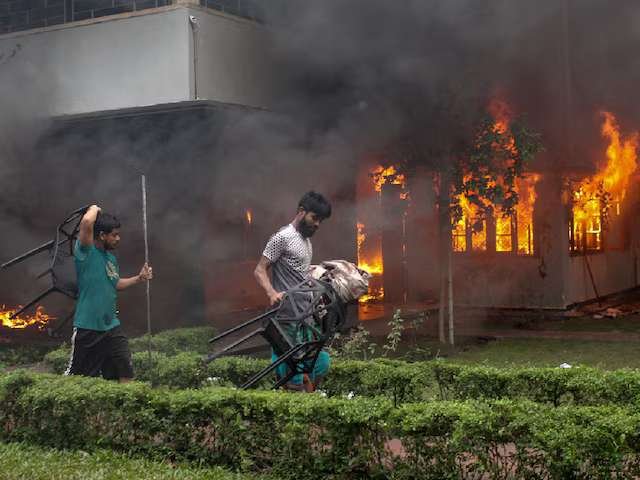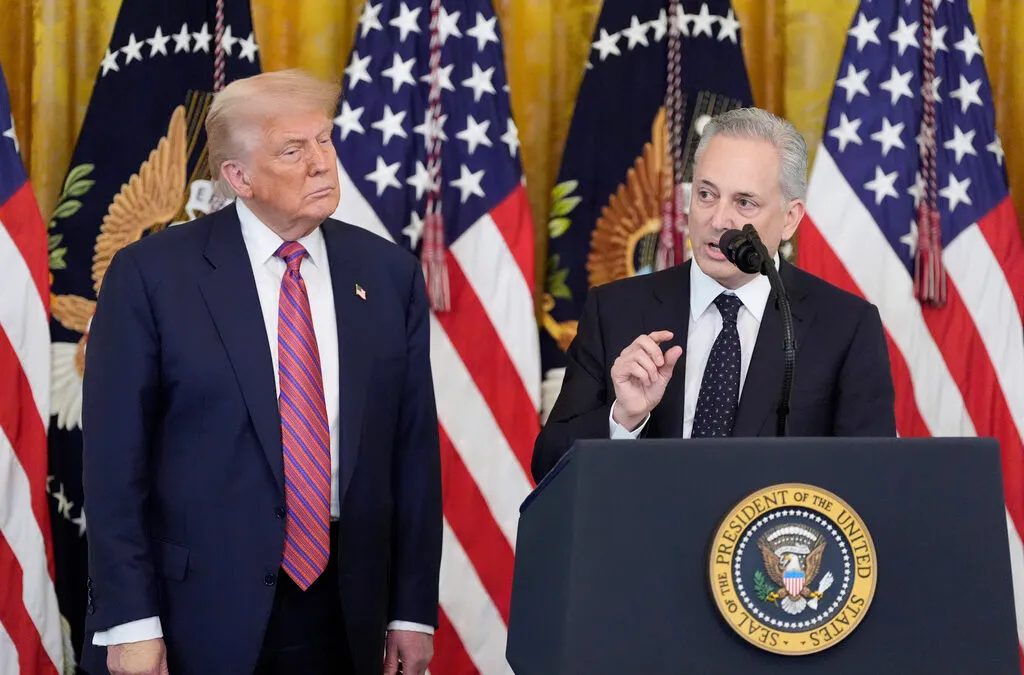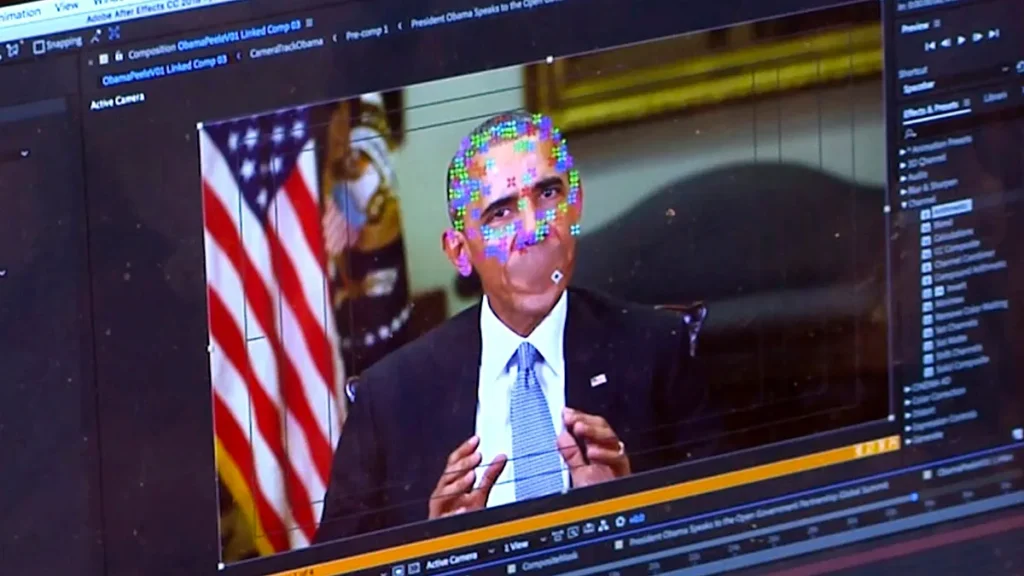A serious incident occurred in Dhaka, Bangladesh, as the offices of the Awami League and the Bangabandhu Memorial Museum were set ablaze amid ongoing unrest in the country. This unrest reflects broader political tensions between the ruling Awami League party, led by Prime Minister Sheikh Hasina, and opposition groups demanding her resignation and a change in governance. Here’s an in-depth look at the context, implications, and potential consequences of these fires.
1. Background on the Political Climate
Bangladesh has been experiencing significant political unrest, with frequent protests organized by opposition groups against the Awami League government. Tensions have been rising ahead of the upcoming national elections. The main opposition party, the Bangladesh Nationalist Party (BNP), along with other opposition groups, has been vocal about their dissatisfaction with Sheikh Hasina’s administration, citing concerns about alleged electoral fraud, authoritarianism, and human rights abuses. They are calling for free and fair elections under a neutral caretaker government, which has not been agreed upon by the current government.

2. The Incident: Fires at Key Locations
The fires at the Awami League offices and the Bangabandhu Memorial Museum signify a new escalation in these tensions. The Awami League office serves as a crucial operational center for the ruling party, while the Bangabandhu Memorial Museum holds significant historical value, being dedicated to the legacy of Sheikh Mujibur Rahman, the founder of Bangladesh and Sheikh Hasina’s father.
Damage to Property: Preliminary reports indicate that the fires caused substantial damage, with records, documents, and party materials destroyed at the Awami League offices. The damage to the Bangabandhu Memorial Museum, a site that houses important memorabilia and exhibits about Bangladesh’s independence struggle, has not yet been fully assessed, but the fires could potentially impact irreplaceable historical artifacts.

Response from Authorities: Firefighters were quickly deployed to control the flames, and an investigation into the cause of the fires is underway. Law enforcement is also investigating to determine whether these incidents were orchestrated attacks.
3. Implications for the Awami League and Sheikh Hasina
The Awami League has been quick to condemn the incidents, viewing them as attacks not just on property but on the party's legacy and national pride. Sheikh Hasina has often drawn upon her father’s legacy to consolidate her support base, and an attack on the museum could be interpreted as a direct affront to this legacy.

Impact on the Awami League's Supporters: The fires have galvanized Awami League supporters, who see the incidents as a sign of disrespect towards the nation's founding fathers. This has increased public demonstrations supporting the ruling party, further intensifying the political divide.
Government’s Stance: The Awami League’s response is likely to focus on portraying the opposition as violent and disrespectful, using this as an opportunity to garner sympathy and reinforce its narrative of maintaining stability in the face of opposition-provoked chaos.
4. Reactions from the Opposition and International Community
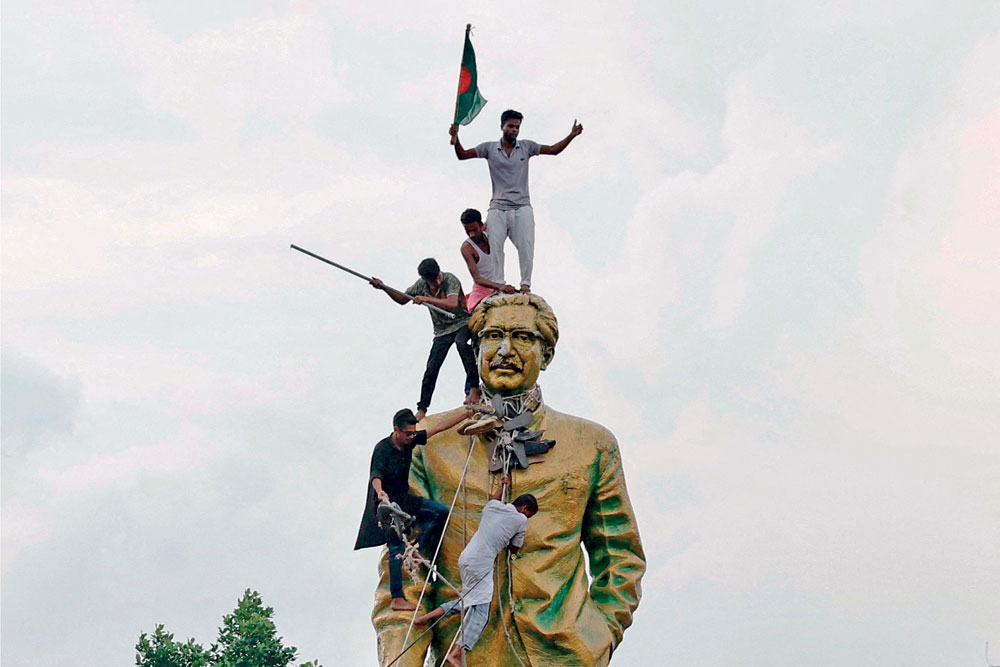
The BNP and its allies have denied any involvement in the fires, emphasizing that they are pursuing democratic means to bring about political change. The opposition has called for an impartial investigation into the fires, alleging that they might have been staged to discredit their movement.
International Concerns: International observers and human rights organizations are closely watching the developments in Bangladesh, with concerns about escalating violence and its potential impact on human rights. The fires, coupled with reports of increased arrests of opposition figures and crackdowns on protests, are raising alarms regarding Bangladesh’s political stability and democratic processes.

Potential Impact on Diplomatic Relations: Some countries may view these incidents as further evidence of the need for Bangladesh to ensure fair and transparent electoral processes. International actors, including the United Nations, may also weigh in, particularly if violence escalates further.
5. Historical Significance and Public Sentiment
The Bangabandhu Memorial Museum holds a special place in Bangladesh’s history, symbolizing the struggle for independence and the legacy of Sheikh Mujibur Rahman. For many Bangladeshis, any damage to this site would be seen as a deeply emotional and symbolic loss, which could affect public sentiment against those perceived to be responsible.
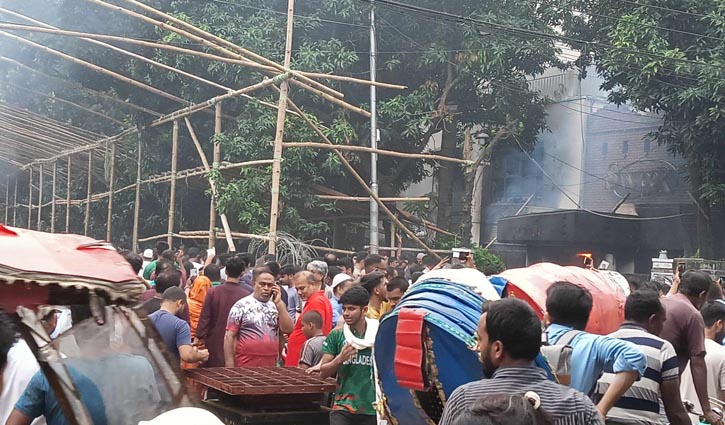
Public Reactions: Public reactions have been mixed, with some individuals expressing outrage and sorrow at the damage to the museum. Others, particularly those aligned with the opposition, are suspicious about the timing and nature of the fires, suspecting a potential political motive.
The Museum’s Role in National Identity: As a symbol of Bangladesh’s fight for independence, the Bangabandhu Memorial Museum holds significant national pride. An attack on this site, therefore, resonates deeply with the population, adding an emotional layer to an already charged political environment.
6. Looking Forward: What This Means for Bangladesh’s Future
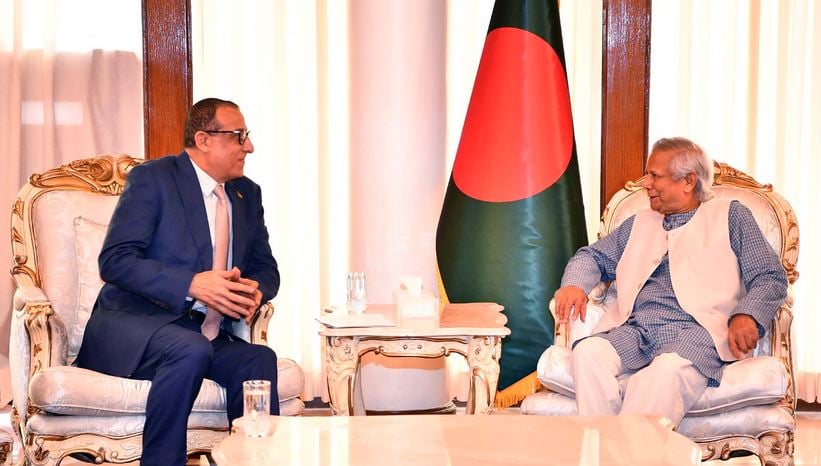
The fires at the Awami League offices and the Bangabandhu Memorial Museum represent a potentially pivotal moment in Bangladesh’s ongoing political crisis. With national elections on the horizon, incidents like these could have far-reaching implications:
Possible Escalation of Violence: If opposition groups continue to be associated with attacks on national symbols, it could result in increased government crackdowns and potential civil unrest. There’s also a risk that these events could spark retaliatory violence, further destabilizing the country.
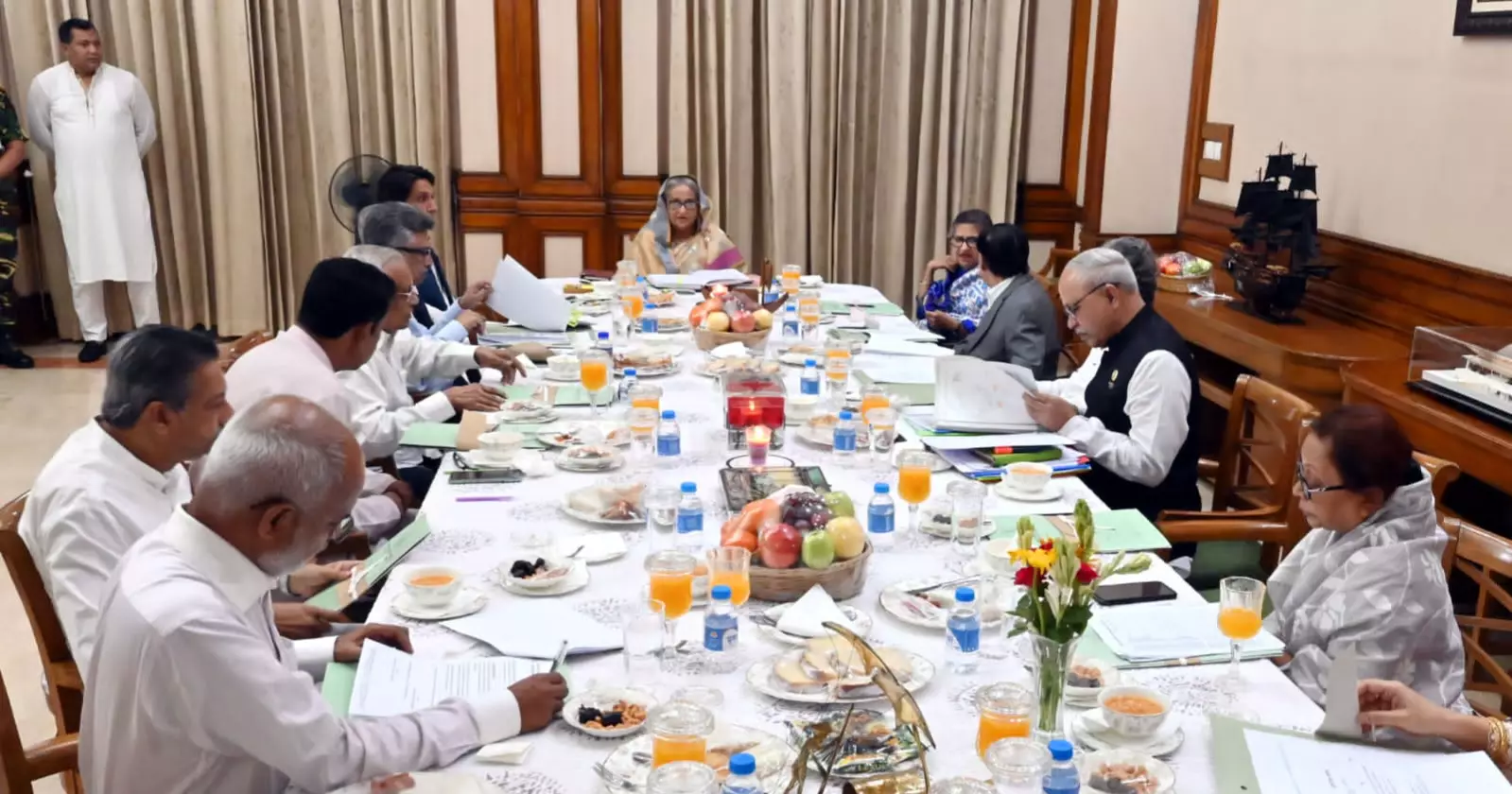
Impact on Electoral Process: The heightened tensions may impact the electoral process, with the possibility of increased violence during election campaigns and voting. The government may use these incidents to justify stricter security measures, which could be perceived as suppressing political dissent.
Long-term Effects on Bangladesh’s Democracy: The ongoing unrest and incidents like these fires raise questions about the resilience of Bangladesh’s democratic institutions. The outcome of this political struggle could shape the nation’s democratic landscape for years to come, either reinforcing or undermining the principles of free and fair elections.

